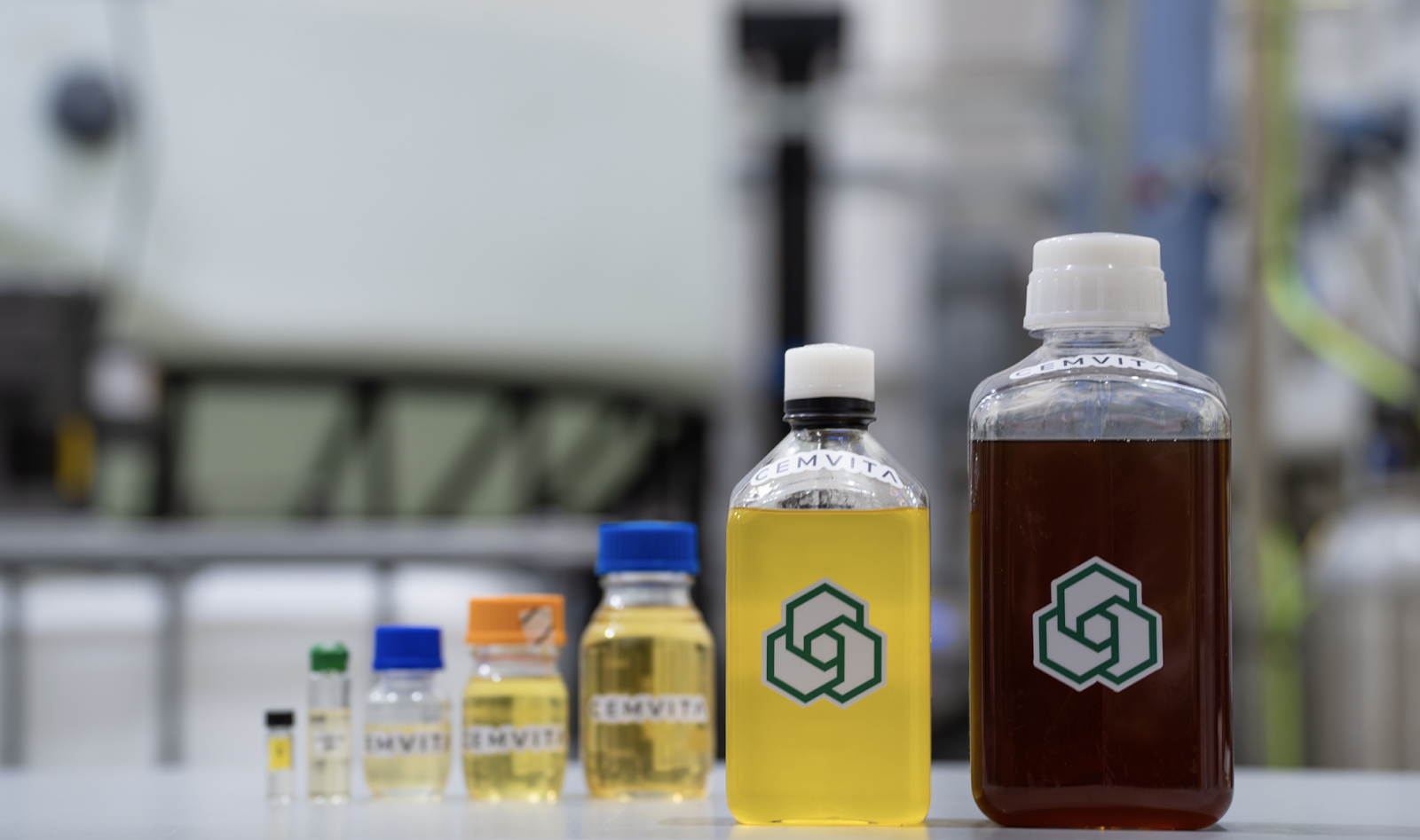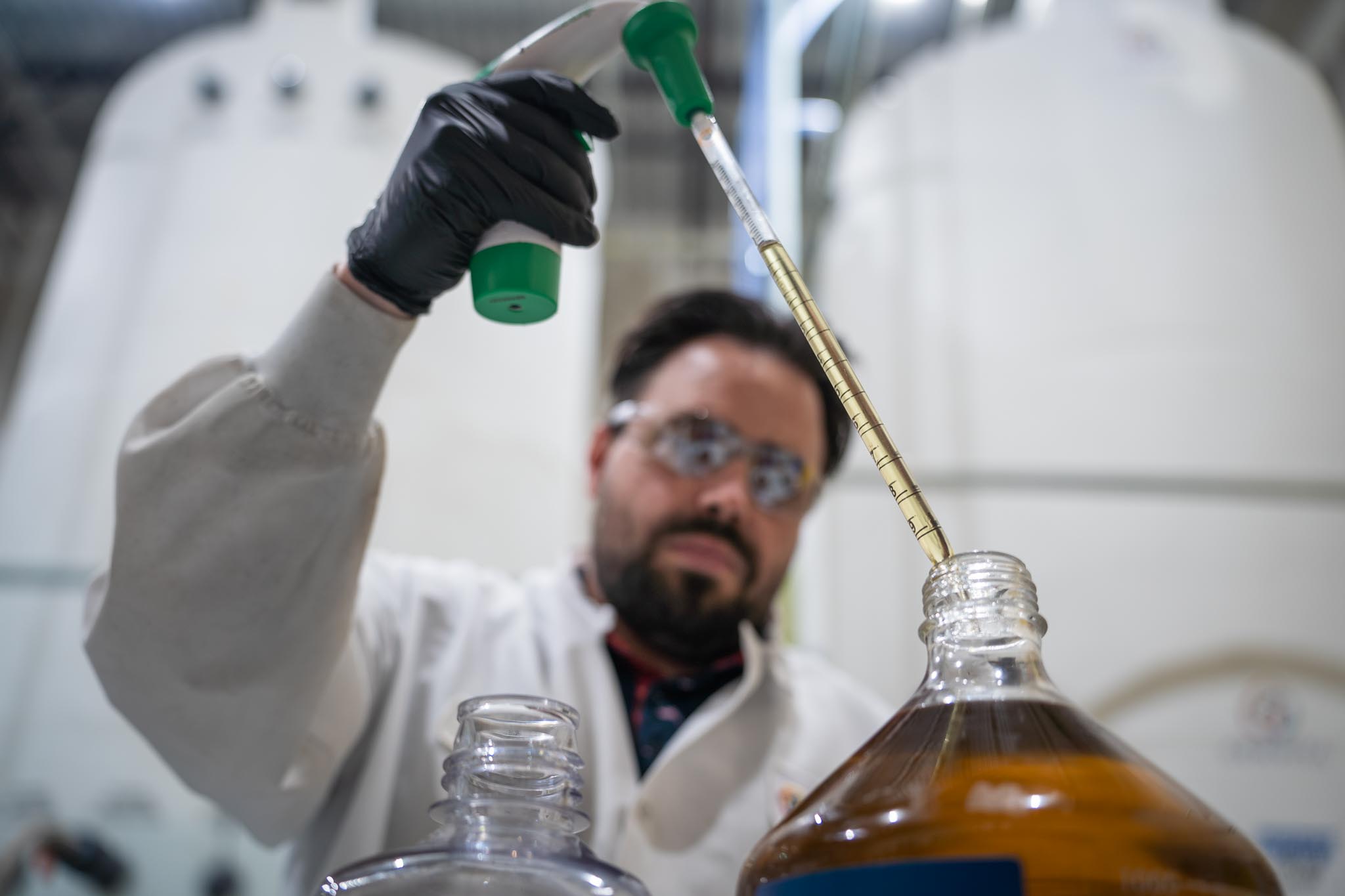Cemvita, the Houston-based startup that pioneered a bio-enzymatic process to extract hydrogen from abandoned oil wells, announced a new milestone in its microbial process to create sustainable oil from waste. The news was announced earlier in July. It marks further advancement in how oil is sourced and decarbonization.
Cemvita is using this process to create up to 500 barrels of sustainable oil from its first commercial plant. The company initially thought it would need five years to develop this lipid production process, but the timeline has been accelerated. A news release said the change is thanks to “adaptive evolutionary enhancements” from microbes. Cemvita says its extraction efficiency has increased by at least 330% and has quadrupled its planned sustainable oil output.
“Our focus on the first principles has allowed us to design and create new biotech more cheaply and faster than ever before,” CEO Moji Karimi said in a statement.
“Our combination of low-CAPEX design, innovations in bioprocess engineering, and increased productivity, enabled by synthetic biology, sets us apart.”
Sustainable oil production from crude glycerin took only two months to develop, right after the company announced a solvent-free extraction process earlier this year.

Photo Courtesy Cemvita
Cemvita is committed to developing more low-carbon alternatives, including sustainable aviation fuel (SAF) and palm oil. The updated microbial processes will help more oil-reliant businesses reach decarbonization goals. These methods are designed to reduce deforestation and lower aviation’s carbon intensity.
The bioprocess technology has produced high-yield extraction from a 4,000-liter bioreactor the company operates in Houston. The goal is to build a SAF that is 80% carbon-free compared to regular jet fuel. The company also wants to test its sustainable oil in cosmetics, specialty chemicals, and food.

Photo Courtesy Cemvita
Cemvita’s most notable innovation is gold hydrogen. The company produced hydrogen gas at less than $1 per kilogram because of the microbial process. The process is less energy-intensive than hydrogen electrolysis and cracks down on abandoned oil wells.
Naturally occurring oil-eating microorganisms attack the petroleum, releasing hydrogen that can be extracted for future use. The biggest setback was the amount of carbon dioxide released from the process.
Cemvita has been working on solutions to use that carbon in its sustainable fuel without creating more emissions.
Using natural solutions combined with synthetic biology will strengthen Cemvita’s standing in the sustainable oil sector. If it can decarbonize several industries, we may see their technology and processes deployed on a larger scale. With a portfolio that includes hydrogen energy cultivation, this company is poised to become a leader in sustainable fuel production.
“Our biotechnology is delivering on its promise of a sustainable future,” Karimi said in a statement. “The benefits and applications are limitless, from avoiding the environmental impact of deforestation and providing sustainable fuels to food and cosmetic applications. We’ve turned waste into a viable alternative to traditional fossil fuels.”





